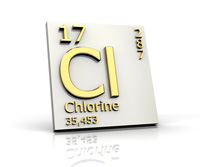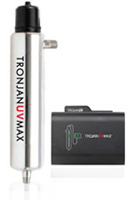
- Allergies and Air Pollution's Effect on Health
- Asthma & How it is affected by Air Pollution
- Air Pollution & Cancer
- Air Pollution's Harmful Effects on the Elderly
- More about HEPA and Carbon activated Filters
- Different types of air filters
- Mold Spores and Indoor Air Quality
- UV Air Purifier Guide
- What causes bad indoor air quality?
- How do Air Purifiers Work?
- Air Pollution May Cause Respiratory Infections
- Air Pollution in the workplace
- Pet Dander's Effect on Air Quality and Asthma
- Air Pollution & Sleep Apnea
- Top 5 Reasons Why you should purify Air
- What you need to know about indoor air
- How Pets cause allergies
- Tips on Choosing the Right Air Purifier
- Multiple Chemical Sensitivity
- What are Dust Mites?
- The History of Air Purifiers
- Air Pollution Problems of the new home
- 5 Ways to Reduce Your Pollen Allergies
- Sinusitis Causes and treatments
- What is HEPA filtration?
- Air purifiers and Wood Smoke
- Home Air purifiers and Cigarette Smoke
- Volatile Organic Compounds (VOCs)
- Formaldehyde Air Pollution
- Is your air purifier ozone free?
Difference Between UV Purification & Chlorination
Tweet
Water in your home should be free of pathogens to avoid waterborne illnesses. There are several ways to disinfect water and Chlorine is the most common disinfectant used to treat public water supplies to kill disease-causing bacteria in the water. It is rather effective in killing bacteria, viruses, and other disease-causing microorganisms, but it does not come without a price. On top of the chlorine taste and smell that is added to the water, there is a bigger health concern at hand. Chlorine that is used to disinfect water reacts with other naturally occurring elements to form toxins called Trihalomethanes (THMs). THMs are tasteless and odorless disinfection byproducts that are formed during chlorination that may have some negative impacts on human health. The Environmental Protection Agency (EPA) has concluded that there is evidence to support a potential association between long-term exposure to high levels of THMs and bladder cancer as well as suggestions of an association with colon and rectal cancers. In addition, the Environmental Research Foundation cites several studies linking moderate to heavy consumption of chlorinated tap water by pregnant women with higher miscarriage and birth defect rates.
With all of these negative health concerns caused by chlorination you may be thinking, why don’t we simply stop chlorinating our drinking water? Without adequate disinfection of our water supplies, the health risks from microorganisms would far outweigh the risks from THMs. Waterborne illnesses can lead to severe illnesses or even death so it is clear that water disinfection is very important. However, chlorination is not the only method of purification that we can rely on. Ultraviolet disinfection is just as effective, if not more effective, without creating any toxic byproducts.

 Ultraviolet water purification destroys illness-causing microorganisms by attacking their genetic core (DNA). This powerful dose of UV light (wavelength of 253.7 nanometers) eliminates their ability to reproduce and the organisms simply die. Disinfecting your water with ultraviolet light is exceptionally effective and environmentally safe. It is able to destroy up to 99.99% of harmful microorganisms without changing the taste or odor of the water. It does not add anything to the water and simply provides reliable disinfection for the entire home. UV systems are very low maintenance and only require changing a replacement bulb every year. The energy used is about the same amount of energy used to run a 60-watt light bulb.
Ultraviolet water purification destroys illness-causing microorganisms by attacking their genetic core (DNA). This powerful dose of UV light (wavelength of 253.7 nanometers) eliminates their ability to reproduce and the organisms simply die. Disinfecting your water with ultraviolet light is exceptionally effective and environmentally safe. It is able to destroy up to 99.99% of harmful microorganisms without changing the taste or odor of the water. It does not add anything to the water and simply provides reliable disinfection for the entire home. UV systems are very low maintenance and only require changing a replacement bulb every year. The energy used is about the same amount of energy used to run a 60-watt light bulb.
UV light is only capable of killing microorganisms in the water such as bacteria, viruses, molds, algae, yeast, cryptosporidium, and giardia. Therefore, the main purpose is to process water that has not been chlorinated or disinfected by chlorine or other chemicals. For example, private wells, rivers, and streams can be disinfected of all bacteria but other contaminants, tastes, and odors cannot be removed. Filtering heavy metals and other chemical contaminants are usually combined with other various types of filtration like reverse osmosis, carbon or sediment filters. If you are on city water it is highly recommended to add a whole house carbon filter to remove chlorine from the entire home on top of your UV protection, to provide complete filtration.
UV Vs. Chlorination
- UV disinfection is very low maintenance and only requires an annual bulb change. Chlorine disinfection requires active operation and attention.
- Ultraviolet does not have any problems with chlorine gas being liberated and creating dangerous fumes.
- Chlorine is an additive material and creates an unhealthy byproduct. UV does not add anything to the water and does not have any byproduct.
Ultraviolet protection allows for higher quality of water standards without adding in any chemicals. It is a healthy, environmentally safe, and cost-effective way to treat your water. With the growing number of toxic substances and increase in sources of water contamination, purified water is more important than ever for continued good health.

